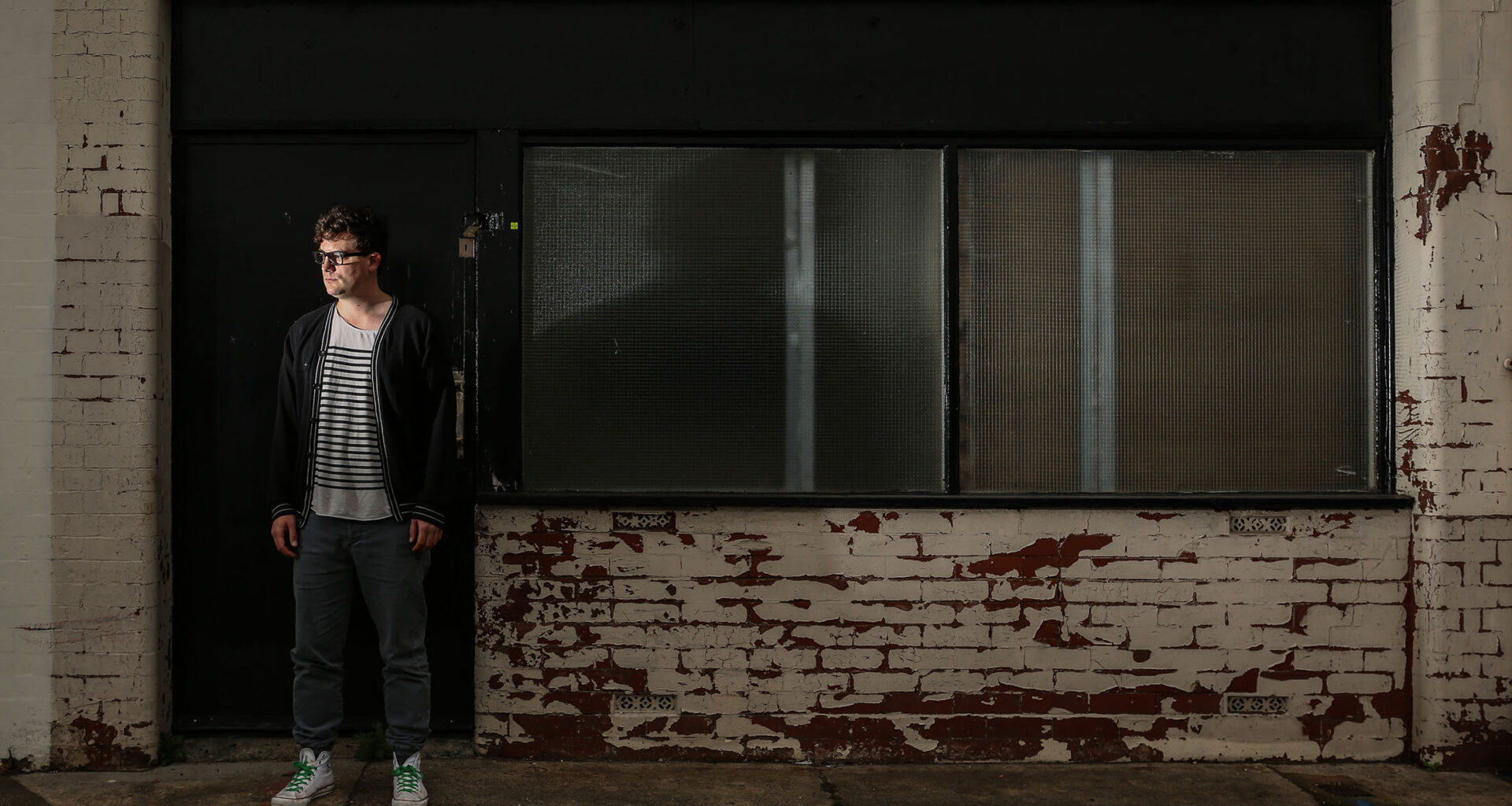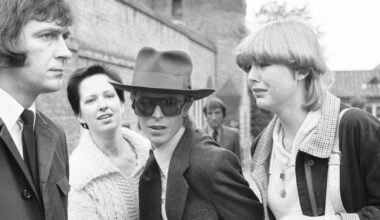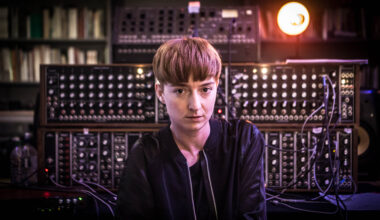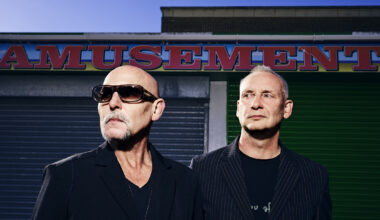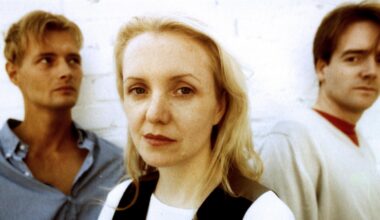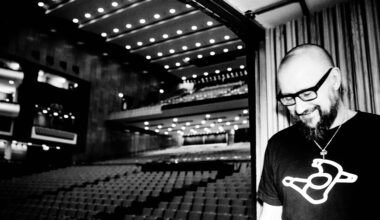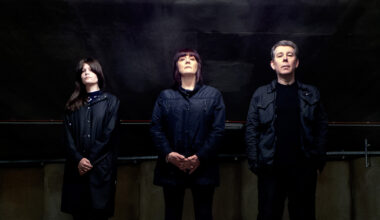With the release of his second album, the gorgeous ‘Wysing Forest’, Luke Abbott discusses the relationship between modular synthesis and the dramatic open spaces of rural East Anglia
First, some essential facts about Luke Abbott…
1) He wrote one of the finest pieces of electronic music of the 21st century so far. It’s called ‘Brazil’ and it’s beautiful and moving and if it’s not already a part of your life then it needs to be. It’s named after the Terry Gilliam film, not the country.
2) His earliest musical influences came from repeated explorations of his dad’s record collection. Mr Abbott Snr is a musicologist and his collection consists of a large and diverse cross section of 20th century music.
3) The sound of Django Reinhardt’s recordings is more important to Luke Abbott’s method of music making than, say, the back catalogue of Kraftwerk. And when I say “sound”, I mean the quality of the recording technique itself, not Django’s playing, although we’re all agreed that’s peerless.
4) Luke Abbott’s new album (his second), ‘Wysing Forest’, is as much a record of a work of art as it is your standard elpee of electronic music.
5) Norfolk.
Let’s start with Norfolk. It’s a large county in the east of England. “Nelson’s county”, as the signposts have it. Its inhabitants understand its peculiar beauty. Everyone else complains about it being out on a limb; no motorways to enable rapid commuting. Much of it is flat and apparently empty (it isn’t, of course, it just looks that way). The flatness makes you notice just how vast the sky is.
Norfolk’s only city, Norwich, is an enclave of creative activity, boasting one of the most respected and long-established art schools in the UK, the university that gave the world the sad truth about global warming, and a pretty good magazine about electronic music (that’s us, that is), but there are small towns on the coast and out in the agricultural heartland where social conditions are bad enough for Great Yarmouth to be dubbed Poverty-On-Sea by The Telegraph last year.
Norfolk is where Luke Abbott calls home and there’s something of the county’s bleak beauty in his music. His debut album, the stunning ‘Holkham Drones’, is named after a north Norfolk village and the video for the song ‘Brazil’ was, in large part, shot in Norwich. But maybe his music is less to do with Norfolk and rather more about Abbott’s creative reaction to his environment.
“I’m originally from south Norfolk and I moved to Norwich to go to art school,” he explains. “And I stayed.”
Luke Abbott is one of an increasingly rare breed, once the backbone of the British music scene – the art school graduate. Scratch any decent British band from the 1960s through to the 1980s and you’d find one.
“I remember when I told my mum I was going to art school and she asked why and I said, ‘I think it’s going to give me a lot of free time to make music’. I didn’t want to be taught about music, but I wanted to do it. So it seemed like the right place to go. You’re left to your own devices at art school.”
And so to ‘Wysing Forest’. The album came about as a result of Wysing Arts Centre – a bold, box-like structure in the middle of nowhere in rural Cambridgeshire designed as a creative space for retreats, exhibitions and events – offering Abbott an artist-in-residence stint funded by the Arts Council. He packed up his gear and headed for the countryside and noodled about and was, like at art school, left to his own devices.
“I took two modular cases, my drum machine, a laptop and a few other bits and bobs. I set up a tiny studio in an old straw bale barn that had been converted into an artist’s studio with plain white walls and lots of natural light. It was a bit like being in an empty white abyss, which I quite liked. It certainly gave me space to think. It was across a field from the farmhouse I was staying in and there would be no one in there after about six o’clock, so mostly I would work though the night because I could make loads of noise then.”
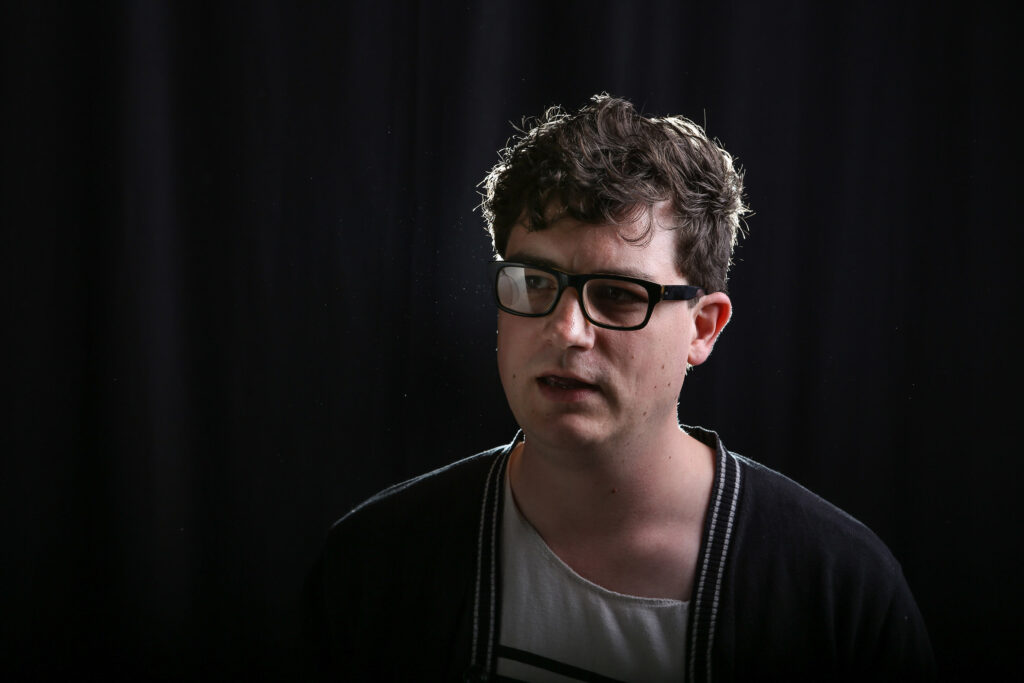
There’s a video of Abbott playing his modular system surrounded by trees on his website. It’s an incongruous sight; all that studio technology with its colourful plastic patch cords set up outdoors, Abbott hunched over the equipment and delving into the array of small knobs to tease the sounds into life. The music he produces is truly bewitching. Is this the electronic equivalent of someone taking an acoustic guitar into the desert and making a campfire album?
“I think it is something like that,” he says. “The sense of place is definitely there, but it wasn’t something I decided on before I made the album. I wasn’t actually even intending to make a record. My whole approach to music is non-deterministic. I don’t say to myself, ‘I’m going to do another EP now’, because whenever I’ve tried to do that, my whole decision making is undermined by the idea that I have to achieve this goal, and I just don’t write good music that way. The only way I find I can get good music out is if I try to be empty-minded and listen to the noises.
“After recording these tracks, it took a long time to piece everything together and make sense of it as a record. Because I hadn’t even recorded it thinking it was going to be released. That’s the joy of doing an Arts Council funded project. You have a vague idea of what your goal is going to be, but you can change tack and allow yourself the space to develop with more freedom and do it more naturally.”
If you listen carefully, at one point on the album you can hear someone washing up in the next room, the plates and cutlery chiming gently. On the outdoor film, there is apparently a dog snuffling away near the microphones and Abbott likes to draw attention to it. These interventions please him, as do the hissing and creaking of the electronic circuits of the modular system.
“That’s the way I play them,” he says. “I look at the noise of it all as one of the musical voices and I’m not afraid of having a bit of sound dirt in my recordings. All my favourite records have got so many incidental noises in the recording process.”
This is where Django Reinhardt comes in.
“The Django Reinhardt recordings that sound like they were recorded into a shoe in a barn or something, those are the good ones, the ones that are really magical. Whenever I’m working, a lot of the sound texture for me is about exploring the possibilities of the gain structures. There is a whole range of sound worlds you can be in, and you can balance stuff how you like it, not what’s ‘right’ or ‘wrong’. I like to find characteristics in the sound that interest me, and make them more prominent, and to take those as my starting point, as opposed to trying to make everything sound clean and professional all the time. That’s not of interest to me.”
Luke Abbott’s music exists in a Venn diagram of his intersecting pursuits and interests (his conversation often revolves around whether he is or isn’t “interested” in a particular musical method or sound, not whether he likes it or not), but it’s also to provide a way for him to learn. His approach appears to be guided by a rational set of guidelines largely untroubled by emotional reactions, despite his music often garnering quite personal responses from its admirers. His demeanour is, in many ways, what you might expect from a synthesist – mathematical, explorative, intellectually rigourous. The way he describes it is technical and yet I think his music is primarily an emotional experience. So is emotion programmed into the mix, I wonder?
“I don’t know how to answer that,” he says, clearly baffled by this suggestion. “You’re the one with the emotions, not the music. The idea of the music being like a prism within which one person’s feelings are somehow transferred to another seems ridiculous to me, although it’s completely reasonable that people have very personal responses to music. But why you would or wouldn’t respond to something emotionally says more about you than it does about what you’re listening to, because not everyone’s going to feel that way. It’s a case-by-case thing. Person-by-person. I wouldn’t bother putting something out unless I liked it, so you and I are probably just interested in some of the same stuff. That’s how I think about it.”
This from a man who used to play drums in a punk band.
“A lot of the rationale behind what I’m doing is me trying to get better at things,” he says. “I’ve never had any technical training in music at all, so I’ve got to learn my own way of doing things. I’m playing around in an area populated with people making professional sounding records and what I’m doing is making slightly wonky sounding records. But I don’t have a problem with that. I really don’t know how to make records differently from how I do, but I still want to get better at it, to be able to make things sound how I want them to. And doing things like production work for people, doing remixes, doing the film, they are as much a way for me to develop my skills as they are for me to work on something.”
The film Abbott mentioned there is called ‘The Goob’. He’s just finishing the soundtrack for it. He says he can’t tell me too much about it, but it sounds like it’ll be worth looking out for. It’s set in Norfolk and it’s the story of a boy leaving school and what happens to him and his family over the course of one summer.
“Because it’s set in Norfolk, there’s an instant connection between the setting and some of the conceptual language surrounding my work,” says Abbott. “There’s that idea of landscape and its importance in the part of the world where I grew up – how it’s very expansive, flat, monotonous, empty, sometimes a bit desolate, but also sometimes stunningly beautiful – and it’s something I’m very familiar with. So I thought it would give me an opportunity to make loads of pastoral synth music [laughs], to give character to the landscape. It was challenging, trying to engage with the narrative structure of the film and making sure you’re fitting into the director’s vision and also trying to be sympathetic to the hundreds of other people working on the project.”
It will certainly be interesting to see how Luke Abbott’s strangely moving electronic music works in a film context. In the meantime, ‘Wysing Forest’ is an album every bit as fascinating as his lauded debut. Seek it out. You won’t be disappointed.
‘Wysing Forest’ is out on Border Community
